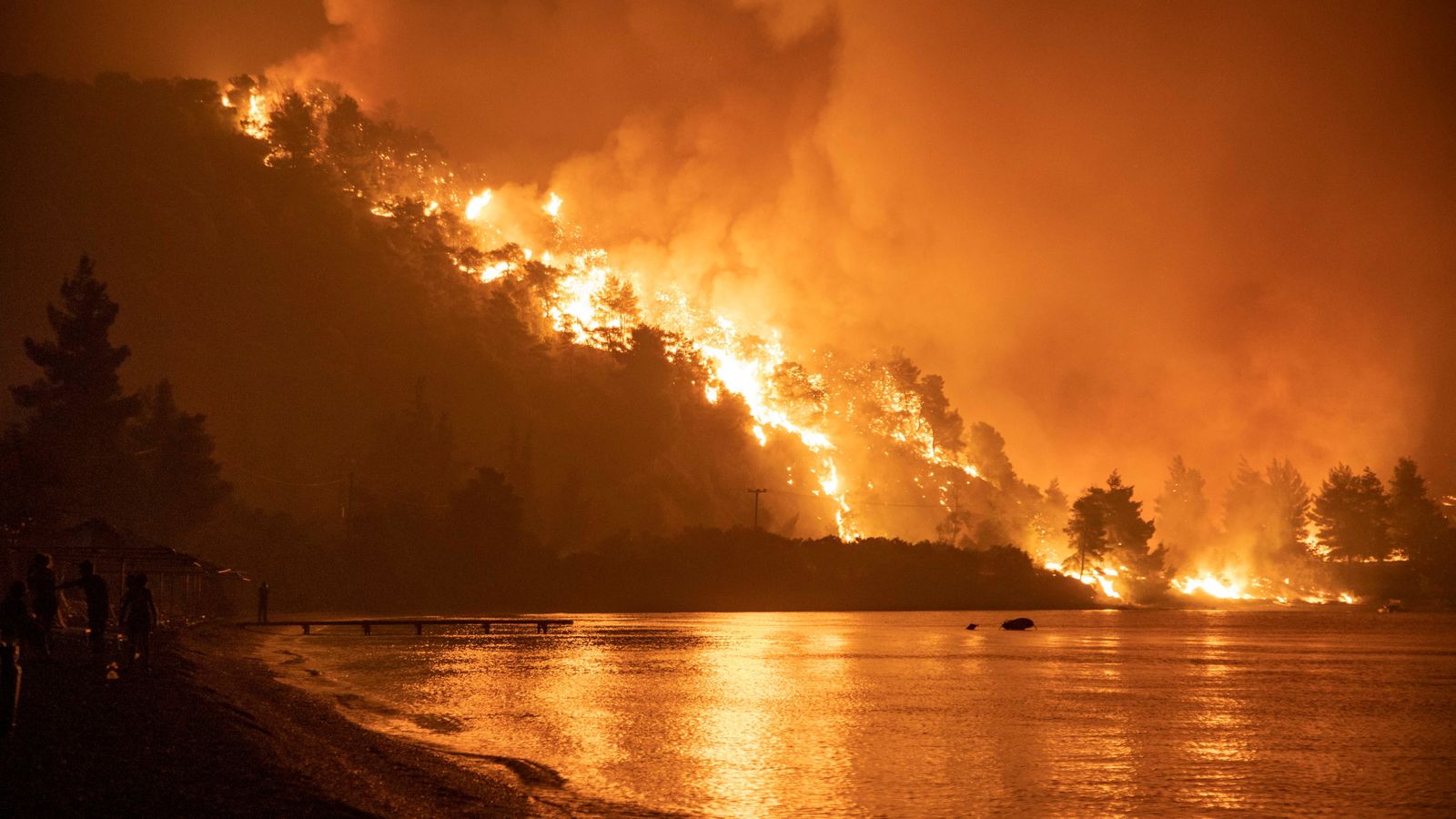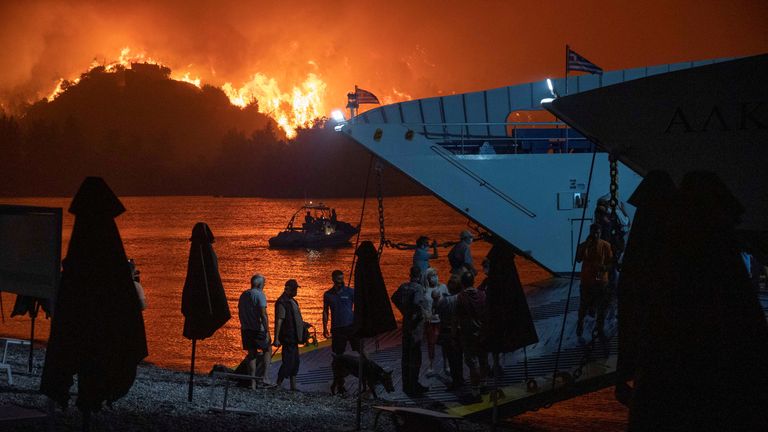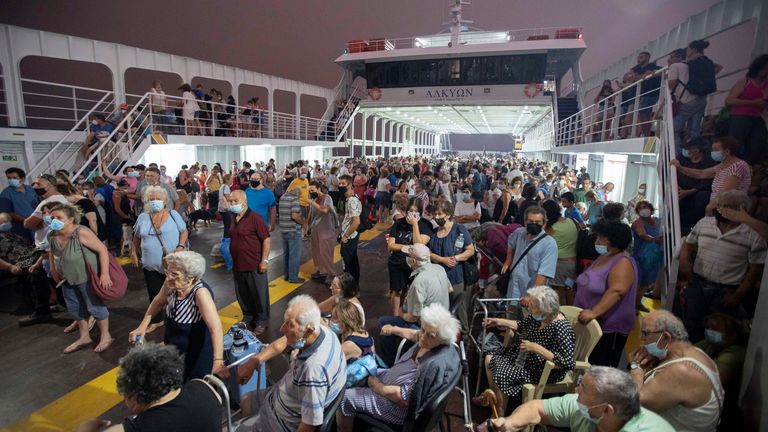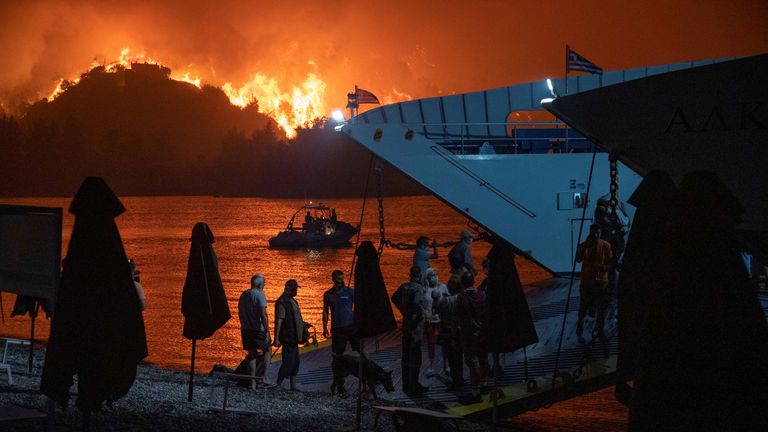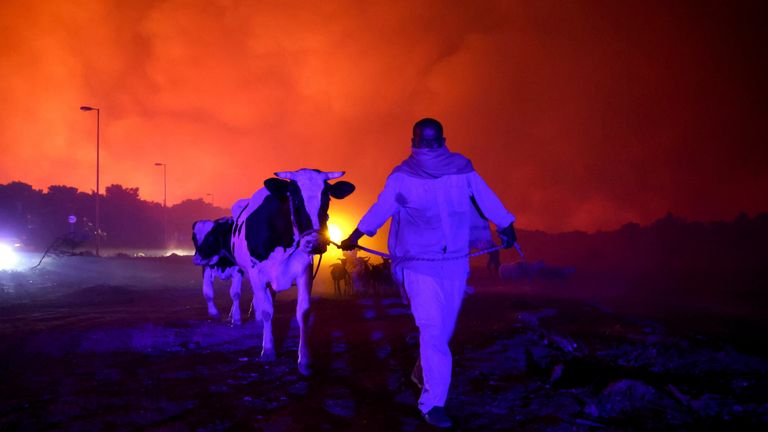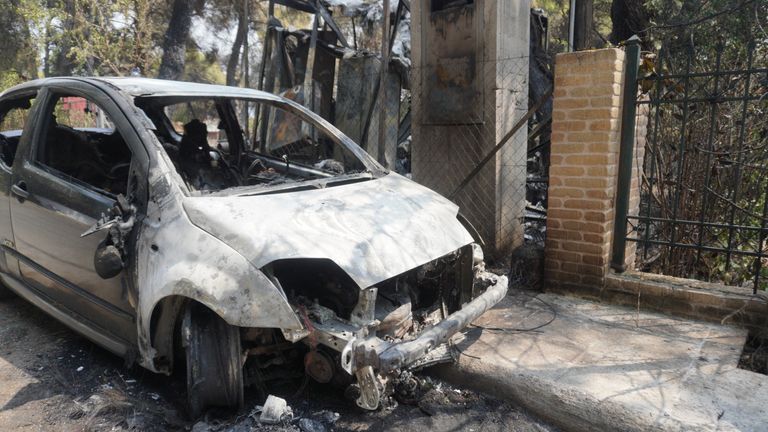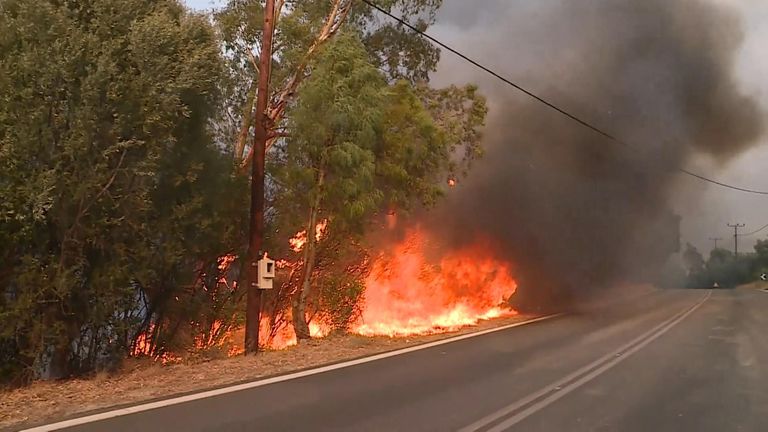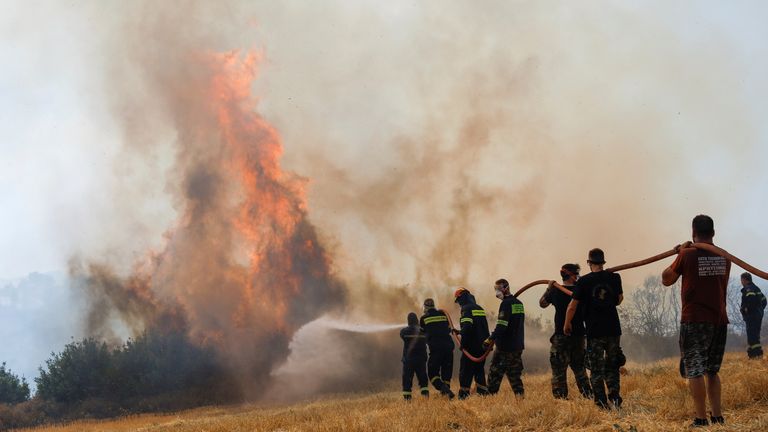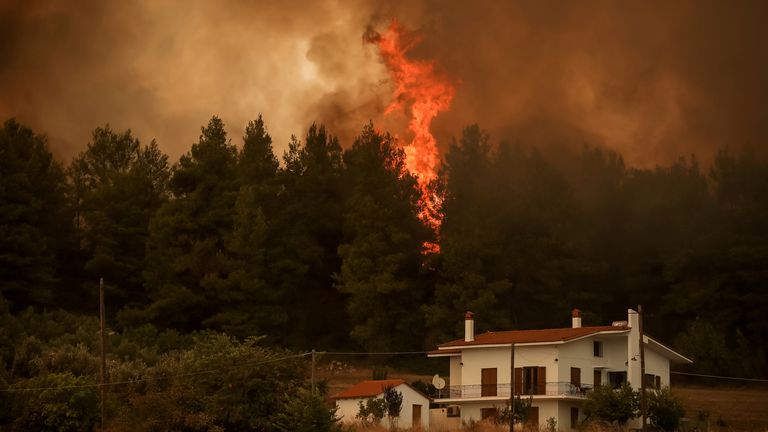British firefighters are being deployed to tackle the raging wildfires in Greece – as new footage shows people escaping by boat as flames fill the sky.
It comes after the death of a volunteer firefighter and the evacuation of thousands of people from an island near Athens, as well as towns north of the capital.
The National Fire Chiefs Council (NFCC) said teams from Merseyside, Lancashire, South Wales, London and West Midlands fire services will fly to Athens this weekend to battle the blazes alongside Greek firefighters.
Home Secretary Priti Patel said: “I’ve seen first-hand this week the devastating wildfires ripping through Greece and the UK stands shoulder to shoulder with our Greek friends at this difficult time.
“I’ve asked the National Fire Chiefs Council to send out a specialist team to provide support in responding to this emergency. I am immensely grateful to the brave firefighters for stepping forward and volunteering to help, and their expertise will be invaluable in supporting the Greek emergency services.”
The wildfires broke out amid the country’s most severe heatwave in 30 years, with temperatures soaring to more than 40C (104F) in some areas.
Fires burned through Greece for a fifth day on Saturday as flames swept through a town near Athens overnight and thousands of residents and tourists were evacuated by ferry from the island of Evia, east of the capital, in apocalyptic scenes shown in new footage.
The blaze on Mount Parnitha has seen crews grappling with winds and high temperatures in a bid to contain it.
“We’re talking about the apocalypse, I don’t know how to describe it,” Sotiris Danikas, head of the coastguard in the town of Aidipsos, Evia, told state broadcaster ERT.
Civil Protection chief Nikos Hardalias said firefighters faced “exceptionally dangerous, unprecedented conditions” as they battled 154 wildfires on Friday, with 64 still burning into the night.
“Over the past few days we have been facing a situation without precedent in our country, in the intensity and wide distribution of the wildfires, and the new outbreaks all over (Greece),” he said.
While the flames appeared to die down later on Saturday, winds were forecast to strengthen – meaning there was still a high threat they would flare again.
During an emergency briefing, Mr Hardalias said: “Under no circumstances can we be complacent. We are fighting a very big battle.”
Homes and businesses have been left blackened and destroyed, although authorities have been unable yet to provide detailed figures for how widespread the damage is.
Shifting winds and new flashpoints on Friday afternoon caused the blazes outside Athens and Evia to repeatedly change direction, in some cases returning to threaten areas that had narrowly escaped destruction earlier in the week.
In the last 24 hours, more than 400 wildfires have broken out across Greece, with the biggest still burning in Evia and areas in the Peloponnese including Ancient Olympia, the site of the first Olympic Games.
Prime Minister Kyriakos Mitsotakis described it as a “nightmarish summer”, adding the government’s priority “has been, first and foremost, to protect human lives”.
At least 20 people have needed hospital treatment across Greece and the causes of the fires are under investigation.
In neighbouring Turkey, authorities evacuated six more neighbourhoods near the Mugla province town of Milas as a wildfire burned some 5 kilometres (3 miles) from a power plant.
Turkey’s President Tayyip Erdogan said they were the worst wildfires in the country’s history and six fires were still burning in on Saturday.
So far, eight people have died in the fires that have burned through Turkey’s Aegean and Mediterranean coastal regions for 11 days, forcing thousands of residents and tourists to leave homes and hotels.
